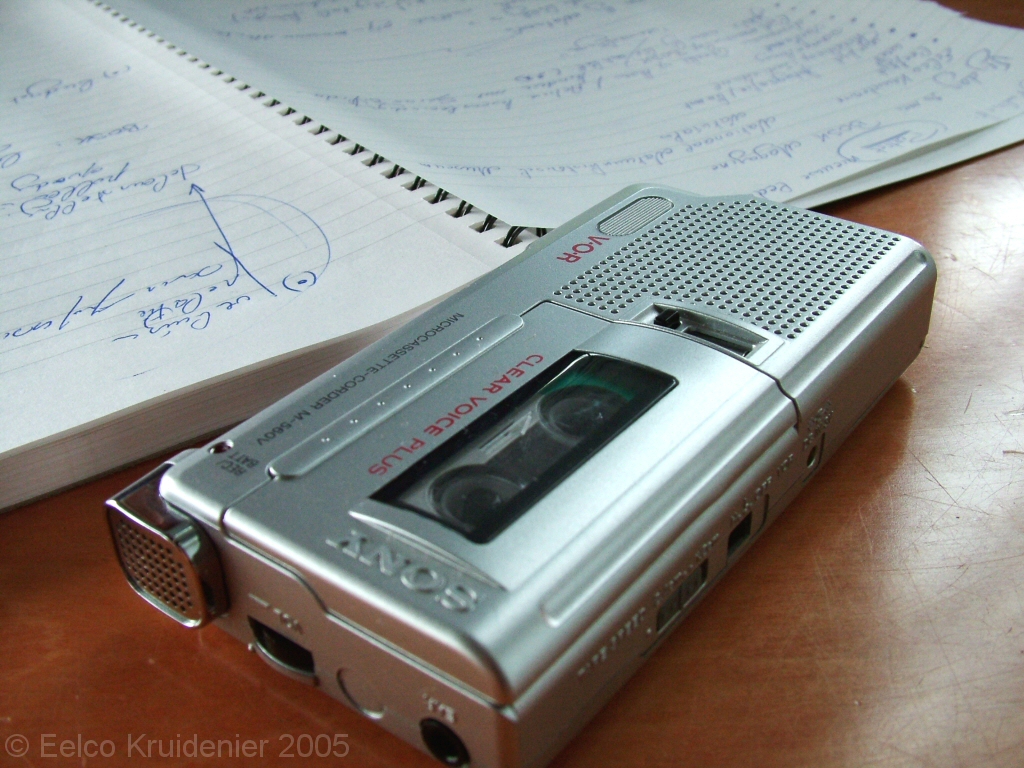You have /5 articles left.
Sign up for a free account or log in.
This GradHacker post is written by Cory Owen, PhD grad student in Educational Leadership at University of Houston, @coowen.
When d oing research, sometimes it is easy to forget about the actual research project as you jump through all the hoops to get your IRB approved, find your subjects, honing in on your questions, etc. For those of us doing more qualitative work, there can be another huge layer of work involved interviewing subjects will be a part of your study. I wanted to look closely at some other factors that can help prepare interviewers beyond the simple adage of "don't ask close ended questions!" As I approach my first "real" project, I'm making mental notes of things that I found helpful along the way.
oing research, sometimes it is easy to forget about the actual research project as you jump through all the hoops to get your IRB approved, find your subjects, honing in on your questions, etc. For those of us doing more qualitative work, there can be another huge layer of work involved interviewing subjects will be a part of your study. I wanted to look closely at some other factors that can help prepare interviewers beyond the simple adage of "don't ask close ended questions!" As I approach my first "real" project, I'm making mental notes of things that I found helpful along the way.
Be comfortable with your questions. No, seriously. I know that they have to be written in a way to properly convey your actual question, but keep in mind your audience. For example, the vocabulary used in your interview questions should be at the appropriate level for your subjects to understand. Now, I'm not saying that if you're going to interview teenagers that you need to resort to looking up a bunch of slang on Urban Dictionary in order to be "cool" with them. On the other hand, it doesn't hurt to have non-technical language at times so that the subjects don't feel confused or that they're being talked down to. This is especially going to be important if you're doing more of a semi-structured (unstructured) interview with more wiggle room. Whether you're designing the questions that are specifically going to be asked, or will ad lib some probing questions, you may want to take a look at Kvale's nine types of questions that you can use throughout an interview.
Know your strengths and weaknesses. For me, I'm not great at eye contact and I have to make a conscious effort to do that--especially when it is so tempting to just take notes throughout an interview! For you, it may be that when you're nervous, you talk quickly. Or maybe you dominate the session with nervous chatter. Or stoic silence. Either way, figure it out before the actual interviews take place. While doing mock interviews with your friends and family can be helpful, there's something a little too comfortable about that. You may want to find someone that you don't know very well and get critiqued. I did a mock interview where I had others watch the interview and let me know the areas I needed to improve in. It was surprisingly nerve-wracking to do this in front of an audience! But the criticisms were helpful and now I have a better idea of how I need to approach my subjects.
The environment counts! Keep in mind the other factors that may impact your interview. The location is sometimes restricted by the IRB, but this should be thought about in great detail. Will the subject have a hard time getting to the location? Is it a "safe zone" for both you and the subject? If the topics are sensitive, should it be in a private location or is a coffee shop okay? Beyond that, you may want to consider other things such as your own dress. What you wear to the interview can impact the subjects willingness to speak to you for various reason. For example, showing your tattoo may or may not get across the image that you want to encourage openness within the subjects. All of this, of course, is dependent upon your research topic and the subjects that you expect to see.
Be an engaged listener. With all the technology today, it is easy to rely on our tape recorders or video cameras to catch a lot of the interview. But it important to be an engaged listener to encourage the subject to continue speaking. Simple head nods or quiet "um-hmms" can help foster a sense of interest from you without interrupting their narrative. That being said, be aware that you're not leading the subject. If the subject feels that you are looking for a certain answer, you may need to pull back on any physical or verbal signs that you're looking for certain things.
Don't interrupt unless you must. Often in qualitative research, the richest data we find is when the subject is comfortable just talking about their experiences and thoughts with you. While sometimes this can bunny trail off into topics not related to your areas of interest, by giving the subjects a little bit of room to talk, you may discover a completely new angle to your question that you hadn't thought of before. Of course, you've gotta know when to reel them in and bring them back to the topic on hand.
No double-barreled questions! Make sure that the question is only one question. You don't want to ever ask a compound question to your subject, receive their answer and then wonder which part of the question they were responding to. It is important to keep things simple so that you can code your data later and if you're confused, you can be probably assume that they were confused as well.
What other tips to you have for new interviewers?
[Image courtesy of Flickr user smiling_da_vinci with Creative Commons License]








